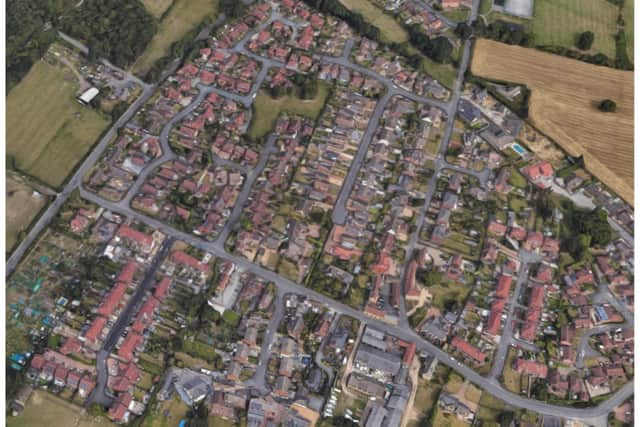Doncaster village named 'most English sounding' in the whole of England
and live on Freeview channel 276
The study shows that 'Harlington', which is also a district of London, is the most archetypal English place name, along with 'Widdington' in Essex and 'Colworth' in West Sussex.
In contrast, ‘Danum’ – the Roman name for Doncaster – was the least English-sounding, along with Belgravia in London and Moira in Leicestershire.
Advertisement
Hide AdAdvertisement
Hide AdAlthough AI was used to determine the language basis of English place names, not the meaning, the results could reveal more about the history of the locations.


Most English-sounding places in England
1. Harlington
2. Widdington
3. Colworth
4. Beckington
5. Didlington
6. Toddington
7. Lowthorpe
8. Tiddington
9. Bedlington
10. Ridlington
The new study was conducted by Dr Michael Dalvean, an expert in computational linguistics at the University of Western Australia.
'Each English place name is ranked according to the extent to which it resembles place names from the other countries,' he said in his paper.
'This provides a basis for determining the likely language to use to interpret the place name.'
Advertisement
Hide AdAdvertisement
Hide AdDr Dalvean used machine learning, a particular subset of AI that allows systems to learn and come to informed conclusions.
To determine their Englishness, the AI compared 18,799 English place names to 84,687 place names of 10 other European locations – France, Germany, Ancient Rome, Norway, Sweden, Denmark, the Netherlands, Scotland, Ireland and Wales.
These 10 places are major locations in Europe and have historically had 'a high level of linguistic and cultural influence on England', according to Dr Dalvean.
'The idea is to rank each individual English place name in terms of the extent to which it resembles the place names of England as opposed to the place names of the other ten European countries,' he said.
Advertisement
Hide AdAdvertisement
Hide AdMany of the most archetypically English-sounding places in England have the element '-ton, which comes from the Anglo Saxon '-tun', meaning an 'enclosed space'.
The results also suggested the greater the number of vowels divided by the length of a place name, the more likely it is to be a Roman, as opposed to an English, place name.